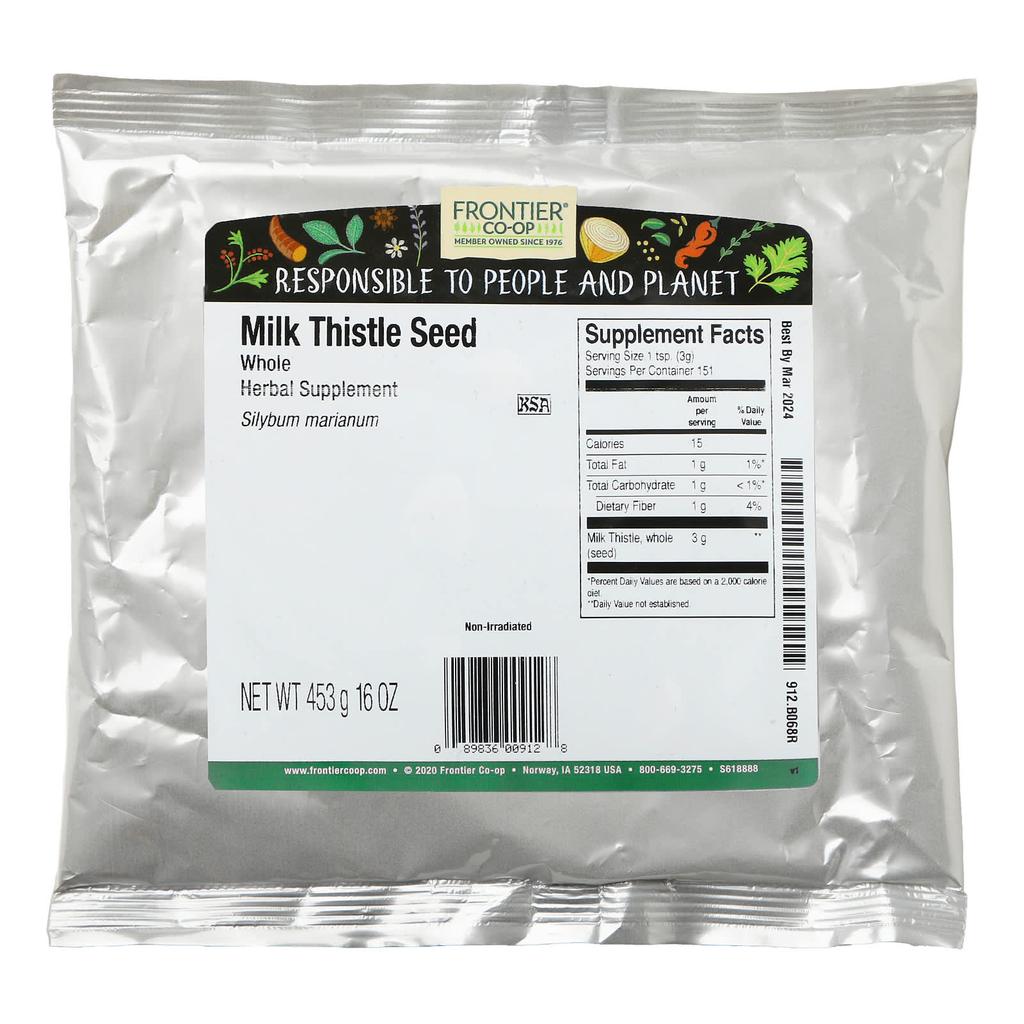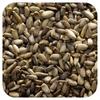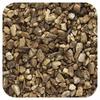Product Description: Cooperative founded in 1976 Responsibility for people and the environment Milk Thistle (Silybum marianum) Kosher Radiation-free The firm, dark-colored seeds of milk thistle are ground and used to make teas and tinctures, in capsules, or added to foods. Whole seeds are also added to foods. The seeds have a bitter, nutty flavor and a subtle aroma. Origin: Bulgaria Scientific name: Milk Thistle (Silybum marianum (L.) Gaertn.)
How to use: Grind milk thistle in a coffee grinder or spice grinder, and add the liver seeds to shakes or cereals. Or, if you prefer liver seeds, package them in capsules. To prepare milk thistle tea, steep 1 teaspoon of crushed seeds in 1 cup of boiling water for 15 minutes. The crushed seeds can also be prepared as a tincture using a solvent of 50% alcohol and 50% water (or 100% vodka). The whole seeds are also great roasted and added to salads, breads, and cereals. The liver-protective properties of milk thistle seeds have been studied extensively. While formulations with concentrated levels of silymarin (70 to 80%) are studied as a treatment for a variety of liver problems (especially in Europe), whole seeds with lower silymarin levels are used as a liver tonic, to “support healthy liver function” and to support overall well-being. Chronic drug and alcohol abusers can also use milk thistle as a supportive herb.
Note: The Herbal Safety Handbook* classifies milk thistle as: Class: 1: Herbs that are safe to consume when used appropriately. German Commission E Monographs for Milk Thistle Seed** There are no known contraindications, adverse effects, or drug interactions. *Michael McGuffin, ed., Botanical Safety Handbook, Published by the American Herbal Products Association, (New York: CRC Press, 1997) **Mark Blumenthal, ed., The Complete German Commission E Monographs, (Austin TX: Integrative Medicine Communications, 1998)
Ships from Korea



























